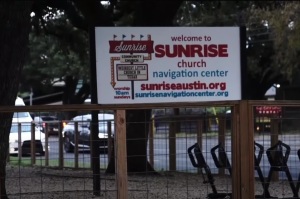How Do We Love a Faithless Church? (Part 2)

When we are confronted with faithlessness in the church, the way we respond says a lot about our posture of power. In part one, we saw that there is no way to follow Jesus and not be for his church. To love Jesus is to love his church, not because she is loveable, but because his devotion to her makes her lovely. But what this does not mean is that we ignore evil in the church. Rather, we need to name evil in truth and in love.
Naming Evil in Truth and in Love
If we are devoted to the church, we can be assured that at some point we will be frustrated, will suffer at her hands, and will know anger at her faithlessness. Nonetheless, none of this is reason to lose hope, because our hope is not in the church but in her Lord.
This uncovers two temptations we have to wrestle with: Either we are tempted to avoid naming evil in the church or we are tempted to name them too often and become jaded. These are both failures to trust in the way of Christ.
When Jamin Goggin and I were asking these questions for our book, The Way of the Dragon or the Way of the Lamb: Searching for Jesus' Path of Power in a Church that has Abandoned It, we were confronted with story after story after story of failure in the church. Many of these weren't minor grievances, but we were hearing stories of real evil that had infiltrated the church. When we began studying these things more deeply in Scripture we were confronted with the reality that these evils were a part of James' discussion of the world, the flesh, and the devil (James 3).
These were more than mere minor mistakes, able to be fixed by tinkering with procedures and programs. These evils were signs of a power system in the church that was antithetical to the way of Jesus. As we attended to these things, what became clear to us is that we needed a way to "stand firm" (Ephesians 6:13) in the present evil age, especially when that evil age had infiltrated the church.
First and foremost, what we discovered is that we have to be open to naming evil both in ourselves and the church, all the while seeking to rest upon Christ. We do not lose hope in the face of the church's failure, because she serves as a witness, not to her own faithfulness, but to Christ's. When Jamin and I sat down to write The Way of the Dragon or the Way of the Lamb we knew we needed to find people who could name these things for us in wisdom, love, and truth, and so we sat down with sages like Dallas Willard, Eugene Peterson, and J. I. Packer, to name a few. It was incredible to see how honestly they could name real evil and abuse in the church, without losing the slightest bit of hope. Their hope was in the Lord, and they trusted that his way would prevail.
Within our current Christian culture, unfortunately, I think we tend to turn to other solutions. Some focus on finding the "silver bullet" church model that can avoid the messy reality of evil in the church. These folks put their hope in models they believe can bypass the pain broken people inevitably bring into the church. Others avoid the way of Jesus by keeping the church at arms length, longing for Jesus but not accepting his call to love his faithless wife. Some simply seek a church that is impressive, setting themselves up for disappointment by putting their hope in a church that is savvy, impressive, and powerful.
Each of these approaches, in some way, replaces a focus and hope upon Christ with something else. Each, in some way, believes the church should be, and can be, beautiful in her own right, rather than being a witness to the beauty of Christ. Each of them, furthermore, sees the struggle with evil in the church to be something that can be avoided, rather than something to stand against.
This is not the way we see in Scripture. Rather, we all stand before a fork in the road as we consider the church, and we have to answer the question: Which way will I go, the way of the Dragon, or the way of the Lamb?
The way of the dragon continues to seduce people — even in the church and in the Christian life — to pursue its way for the kingdom, and it is warping the souls of our people.
What might it look like to walk in the way of the lamb who spoke truth in love, and sought to glorify God in all he did?
This is the question that must drive our conversations about the church, evil, and our calling. Ultimately, loving Christ's church is not optional for Christians, but neither is standing against evil. We must discern the way to stand against evil, even in the church, that is faithful to the way of Jesus.




























